Jump to: finding great hotels, hostels, or Airbnb’s
Are you a fan of lifeless chain hotels and mass tourism resorts?
Yeah, me neither.
When I travel, I always try to go for the charm and warmth of smaller independent hotels, backpacker hostels, or B&Bs. Not only are these much more cozy places to stay, they’re often much more budget-friendly too!
One of the cool things about traveling independently is that you can always cherry-pick your accommodation.
Even though the booking platforms can make it difficult sometimes, using the right methods you can often find wonderful gems that are also easy on the wallet.
Here’s how.
Finding cheap but good hostels
Hostels offer amazing value for money. They typically offer dorm rooms as well as private rooms. Some of the facilities or amenities might be shared.
Hostels have gotten better and better over the years. Some are still super basic ‘youth hostels’ purely for shoestring travelers, but many have hotel-like qualities but for far less money.
The biggest and best site for finding hostels is Hostelworld. They pretty much own the hostel market.
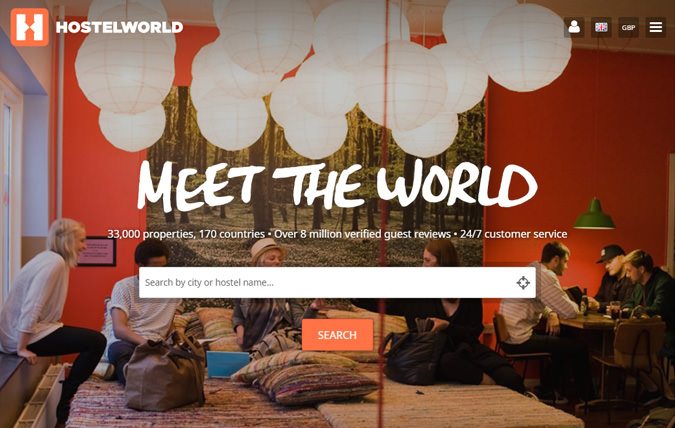
Hostelworld is not just for hostels. It also lists local guesthouses, budget hotels, B&Bs and even luxury hostels (yes, this is a thing now).
A few tips for finding great hostels:
1. Obviously, pay attention to the overall rating. Have a look as well at the rating for ‘Atmosphere‘. If this is anywhere below a 7.0 or so, I avoid it. If the Atmosphere rating is anywhere around a 9.0, you can bet this is one of the most social and popular traveller hubs in the city.
2. Try playing with the Filters as well. I have little pet peeves that I filter for; for instance, I always want my hostels to have secure lockers for my important belongings.
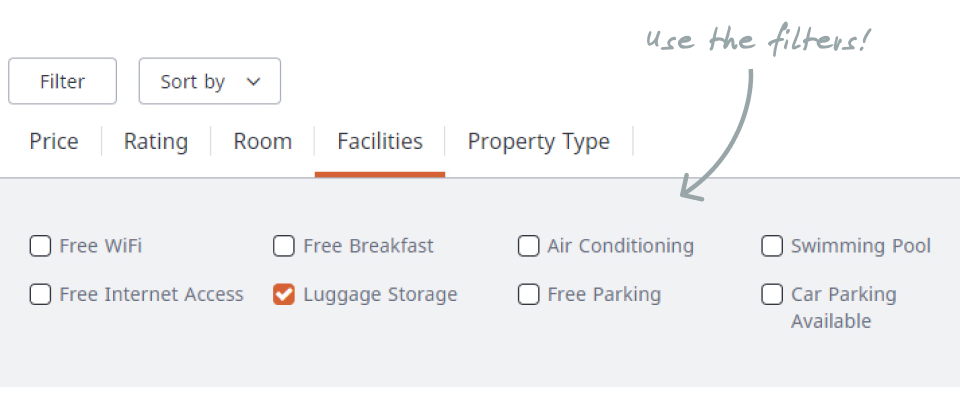
3. If you’re not super young anymore (full disclosure: I’m well into my thirties) you might not want to stay in a hostel that’s 100% youth-focused. Most hostels are good for all ages, but some are party hostels or aimed at a younger and wilder audience. Check how a hostel markets itself; words like ‘free shot on arrival’ or ‘daily bar crawls’ will give you obvious clues. That said, a hostel with a bar isn’t necessarily a party central. Many have a small bar just for socializing.
4. Go for medium-size hostels. I like hostels with around 30 to 50 beds. It’s big enough to make things lively but small enough to keep things personal. Hostelworld doesn’t tell you how many beds a hostel has, but you can often guess from the photos and the room options given.
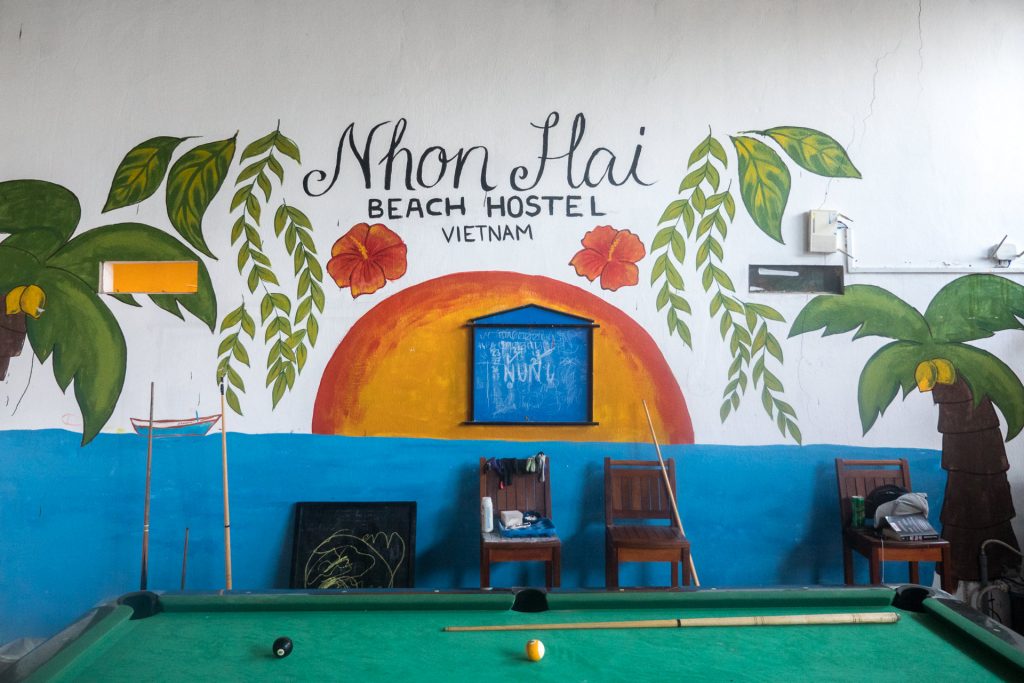
5. Avoid large chains. Hostels with “HI” or “YHA” in the name are part of Hostelling International or the Youth Hostelling Association. Sometimes they’re good, but I usually find independent hostels much better. In Europe, I’m not so impressed by large chains such as A&O, Meiniger or St. Christopher’s… these are like the McDonald’s of hostels. The more funky and creative backpacker hostels are often standalone or only part of a small chain.
6. Check the descriptions for cool stuff! Is there a nice bar, a roof terrace, nightly bonfires or BBQs? Great! Do they offer walking tours and other activities? Even better! Hostels aren’t just about the bed you sleep in, but the environment they offer. Hostels with a daily family-style dinner are absolutely gold for meeting people. Look for these if you’re solo.
Search for hostels
The best site to search with is Hostelworld.com
If you’ve never stayed in a hostel before, you can read more about how hostels work.
Finding cheap but good hotels
Looking for a nice local hotel? Then well-known booking sites like Expedia or Orbitz are not always so great.
In my opinion, they tend to focus on expensive high-margin listings or uninspiring chain hotels. Their business model often prevents them from adding smaller accommodations.
I recommend making Booking.com your first port of call.
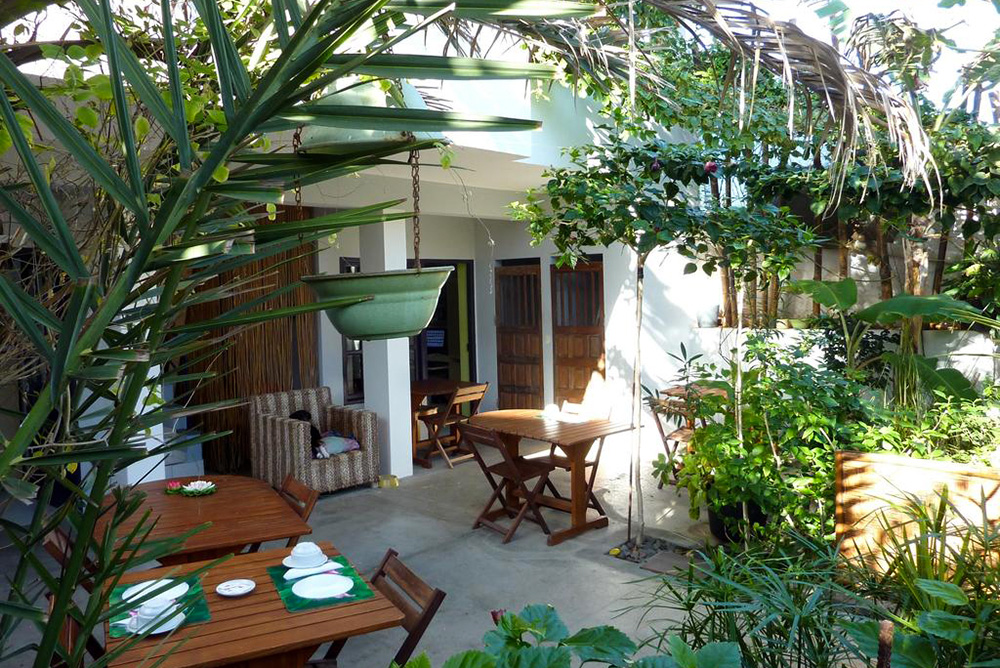
Their business model is different. Other sites basically buy beds in bulk, but Booking.com works on commission. They let independent hotels and guesthouses use their platform directly, in exchange for a fee.
This makes it a goldmine for cheaper and smaller-scale accommodation. Basically, they don’t care if a place has 5 beds or 500, or part of a chain or independent.
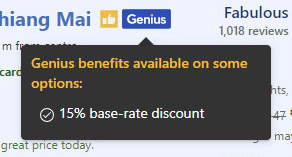 Tip: You can earn discounts and perks like free breakfast by registering at Booking.com. For Genius tier 1, you only need to complete two stays within two years. Easy!
Tip: You can earn discounts and perks like free breakfast by registering at Booking.com. For Genius tier 1, you only need to complete two stays within two years. Easy!The key to Booking.com is its filtering system. Surfacing the truly good stuff usually takes a couple of steps:
1. On the search results page, pay attention to the ‘Filter by’ column on the left-hand side. Tick the first few box(es) under ‘Budget per night’. You can also use the star ratings to narrow things down.
2. Then, consider filtering by property type. To find those cool independent places with character, I usually tick the options like guesthouses, lodges, hostels, homestays, or bungalows and ignore the other categories.
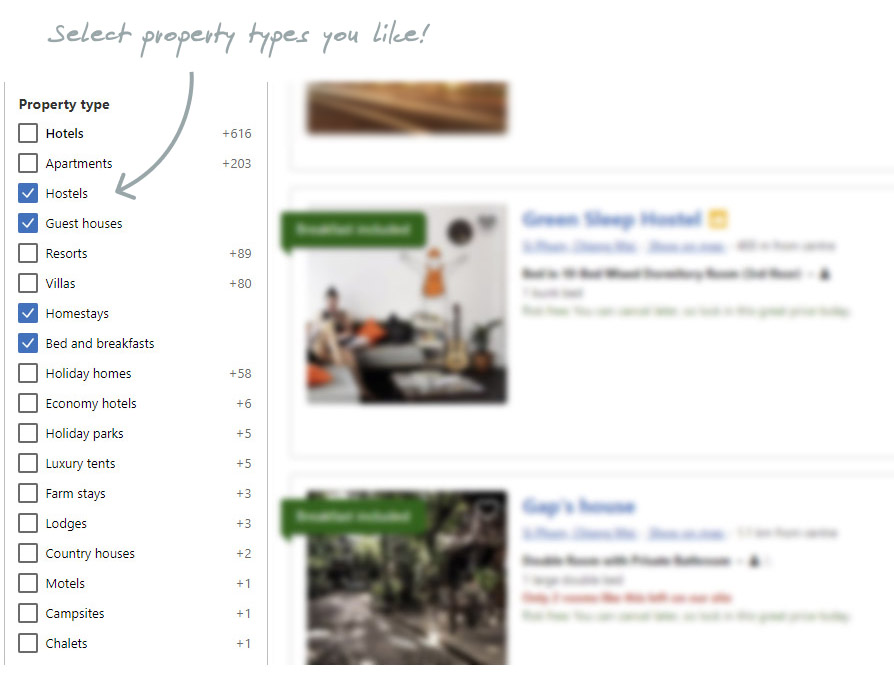
3. Finally, try sorting the review scores. Booking.com does not filter by reviews by default. They just show you whatever they want to promote first! You have to take this manual step to get to the top reviewed ones. I know, pretty annoying.
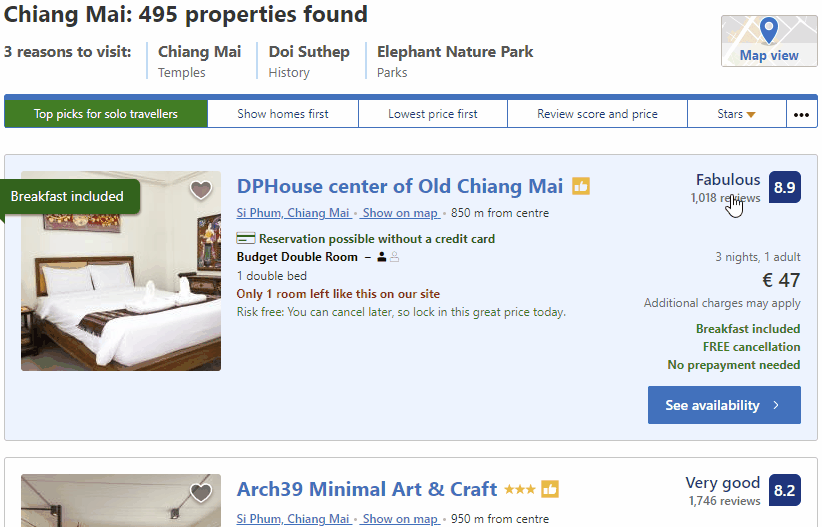
Booking.com actually tries its hardest to hide the reviews. One thing to be aware of is that they only show you the positives about a place when you’re on a hotel profile page. You have to click through to the reviews page to see any of the negatives. Granted, some of these complaints can be quite whiney sometimes, but they can give you useful clues as to whether you’ll really like the place.
4. If you see a good deal and you have free cancellation, lock it in by booking! The Booking.com platform lets hotels use variable pricing, so if the hotel is mostly empty for certain dates, the prices can be very low. But if your chosen dates start to fill up, the prices can suddenly go up dramatically. So, if there is free cancellation (check under the listing’s review score), you can lock in that cheap price without any risk.
5. Finally, some locations around the world have specific property types to filter by, which can be a fun way to look for original accommodation. You can filter for traditional riads in Morocco (converted mansions with courtyards), for beach cabanas in Mexico, or ryokans (traditional inns) and capsule hotels in Japan. It’s always worth having a good look at the options available in the sidebar!
Search for hotels
I recommend using Booking.com for finding cheap and local hotels
One more thing: Booking is a great resource but it’s been known for pressure selling. Ignore messages like ‘hurry, 12 people are looking at this now!’ as these are usually exaggerated.
Finding the best Airbnbs
Airbnb and other similar platforms like it allow you to find properties that are hard or even impossible to find on regular hotel booking sites. The original concept of the platform is wonderful, letting regular people share their house on a part-time basis.
These platforms have come under fire in recent years for putting pressure on the local housing markets, especially in major tourist cities like Amsterdam or Barcelona. I agree with some of the criticism, though I find Airbnb and its ilk far less of a problem in not-overtouristed cities, towns, or rural locations.
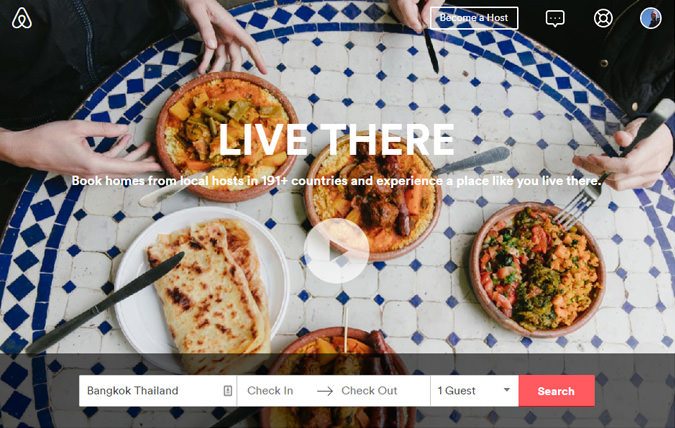
A key thing to understand about Airbnb listings is that the ratings are not so useful. This is because there are very few negative reviews. People simply find it too embarrassing or impolite to criticize someone’s actual home… a place that is clearly deeply personal to them! (According to a study, almost no reviews are scored under 3.5).
That’s why you should pay more attention to the volume of reviews, or the general impression you get from the listing or photos.
I tend to look for photos that look nice but don’t show interiors that are just blandly styled by an agency. You can use Airbnb responsibly by picking properties that appear to be actual people’s homes, rather than one of many properties managed by a large company. I find that these genuine listings will also get you a better and more personal reception from the host. Try getting some local travel tips from them!
Unlike hotels, many Airbnbs have a minimum stay (most commonly 2 nights). So if you’re searching for a 1-night stay, you might have far fewer results than for a multi-night stay.
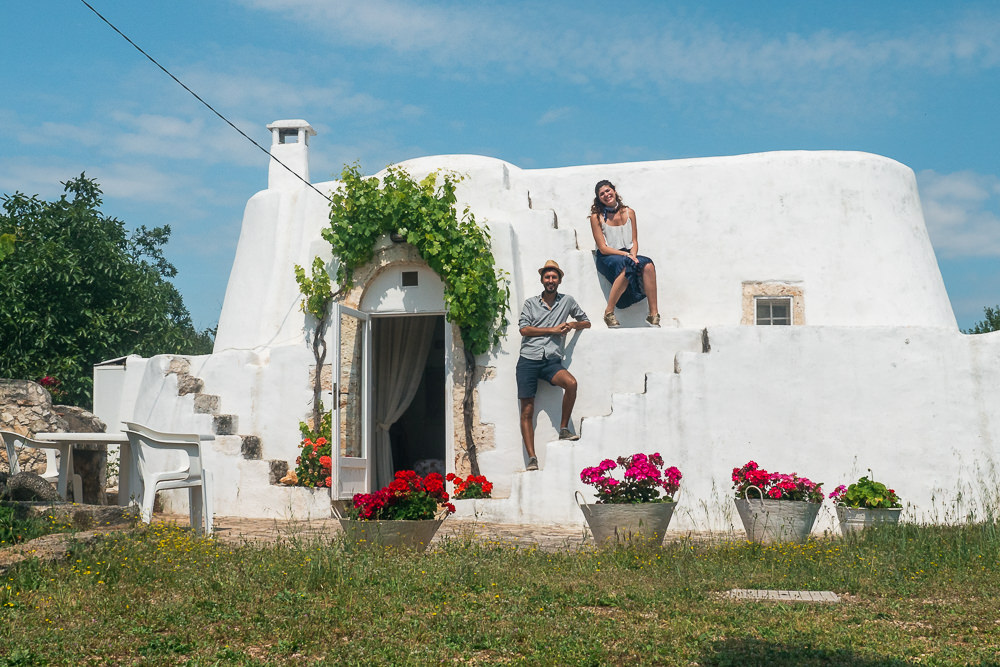
A cute farmer’s house (‘trullo’) I stayed in Italy, under 20 EUR per night. Found it on Airbnb!
Other ways to find cheap places to stay
- Homeaway and VRBO are two alternatives to Airbnb. Check out this helpful overview of other vacation rental sites besides Airbnb that you might not know about.
- On Homestay.com you pay to stay in a local person’s home (kind of like Airbnb), but they will also be there to host you (a bit more like Couchsurfing).
- Some other fun booking sites to check out include Book A Treehouse (!), Hipcamp, and Outdoorsy.
- If you’re okay with staying in a single place for a few weeks or even a few months, you could try house-sitting, for instance through Trusted Housesitters. You’ll be expected to look after someone’s house while they’re away. Thanks to Trusted Housesitters, my sister recently spent a lot of time in Spain enjoying a wonderful house with a pool and a beautiful view while taking care of a cat and some chickens. I’d like to try house sitting for myself soon!
- Finally, I haven’t mentioned this at all so far, but if you’re backpacking or travelling long-term, you can often also just follow the recommendations from other travellers you meet. This is particularly effective in budget-friendly countries in Asia and Latin America where there’s an ample supply of hostels and cheap guest houses. Sometimes all you have to do is go to the next town or city without a reservation, but armed with several good tips for hostels or guesthouses from people you’ve met.
Some links may be affiliate links, meaning I may earn commission from products or services I recommend. For more, see site policies.
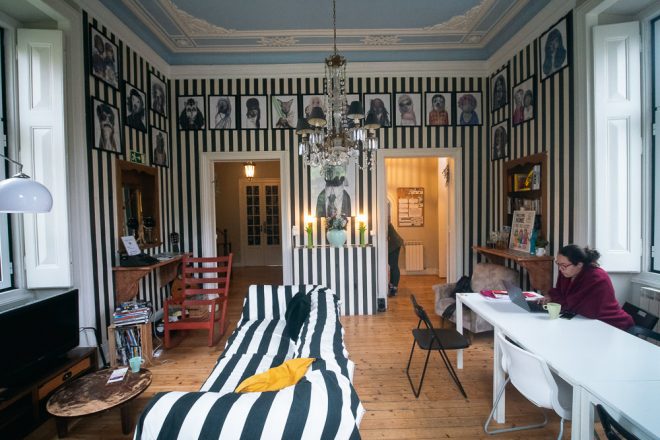


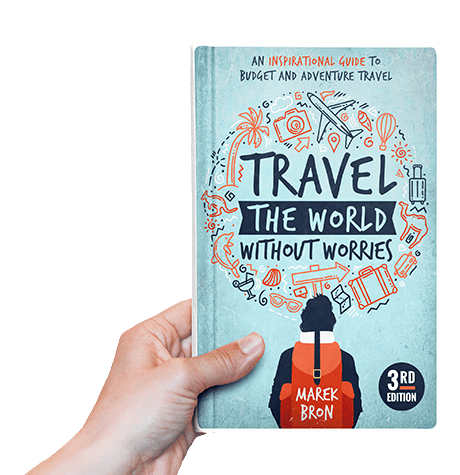



Very helpful, most especially to all the travel bugs like me! Whenever I travel, I always make sure that I get the lowest deals in terms of accommodation. 🙂 Thank you so much for sharing this, very informative!
Thank you for this amazing post. I am a travel blogger from India, this will surely help me a lot.
This is awesome! Thank you for sharing such an informative article. I travel a lot due to my business meetings. However, I’m planning to travel for fun this time and trying to budget everything as possible and at the same time, it’s very exciting. Thank you so much for sharing this! Cheers!
So quick question. I am planning on heading to Southeast Asia (Thailand, Burma, Laos, and Vietnam) from January-March, aka, during the high tourist season. I want to maintain travel schedule flexibility (leaving room for on-the-fly plans as I go) but don’t want to run into the situation where I arrive in a place to find that all hostels are booked and I have nowhere to stay. If I plan on traveling during the high tourist season, how important is it that I book hostels before I leave for Asia? Or will I be able to get away with contacting hostels a week or even a few days in advance as I journey through Asia?
Thank you so much!!!
Hey Nicole. I’ve travelled in Asia during the same time period and while it’s busier you can still stay flexible and get away with booking a few days in advance. You can even just show up to places (but then there’s the chance that high-rated hostel you were hoping to stay at is full).
Great DETAILED post, Marek! I almost exclusively use AirBnB, Booking, and HostelWorld while traveling. It’s incredible what kind of deals/properties one can find using these sites–especially when visiting less-touristic areas. I was able to stay in a recently-renovated Sassi in Matera, Italy for less than a quarter of the price that other sites were offering using Booking. I haven’t used it myself, but I’ve heard that MonasteryStays.com is a useful resourcee in Italy. Of course, the best way to save money is to stay with someone you know, but that’s not always possible. 😛
I Have to say I’m an avid user of AirBnB and booking, yet to try Hostelworld but going to give it a look into from hearing so much about it, thanks!
Great post, especially for beginners in the niche! One must learn how to be sneaky and use the proper tools if travelling will be the main activity 🙂
I used Hostelword, Couchsurfing and Airbnb a lot for travelling and they are really amazing platforms to find a place to sleep. It is very easy to use. With Couchsurfing and Airbnb I met the best people and you really want to be a host yourself once you did it! Good tips!
Great guide Marek! I completely agree with you about finding small independent hostels. Staying at chain hostels can be fun for a bit but the 24 hr party scene gets old after a while. thanks!
Great post outlining the options, with excellent searching advice. Thank you!
Thanks Nora! 🙂